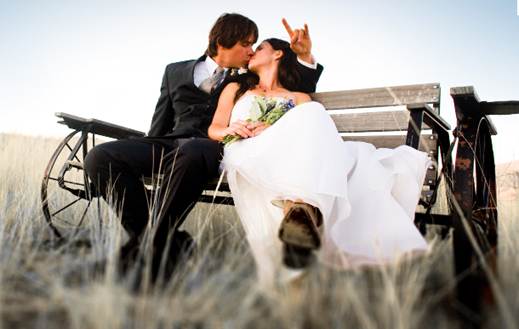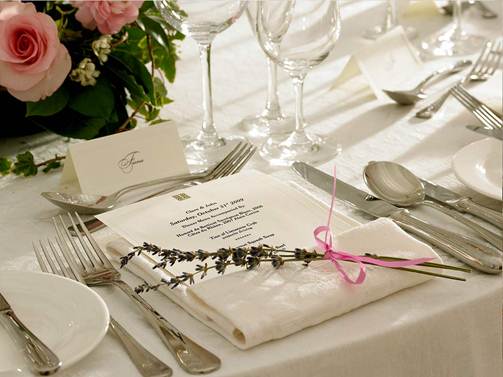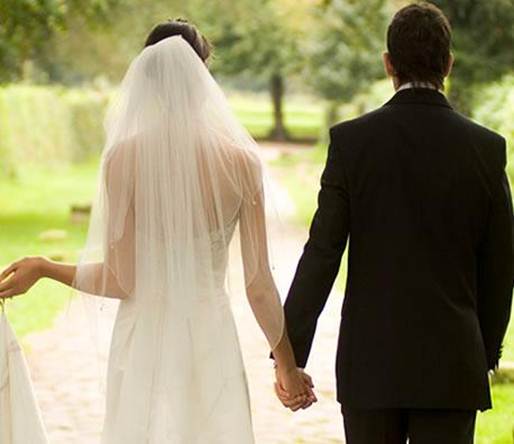In desperate need of sympathetic advice
from someone who has been there (and has the dresses to prove it), I call up an
expert. “It’s really overwhelming,” says Sin Agrell, author of Bad Bridesmaid:
Bachelorette Brawls and Taffeta Tantrums Tales from the Front Lines. When
Agrell was in her late 20s, her two best friends got en gaged. She found
herself overwhelmed (and unenthused) by the wedding process and pitched an
article on the experience to the National Post, where she was working at the
time. “One of the brides thought the story was really funny and one of them
really, really did not,” she says. Agrell was kicked out of the angry bride’s
wedding party her dress went to the bride’s cousin, who stood in her place. The
article prompted an outpouring from frustrated ladies in similar situations who
wanted to commiserate, and Agrell was so taken that she decided to share their
stories in a book. There definitely a phase toward your late 20s where the
wedding insanity feels really acute, where everyone is divided into the camp of
people who are spoken for and people who aren’t,” says Agrell. “One thing that
has been misconstrued a lot is that the single friend is jealous because she’s
still single. There are so many things wrapped up in it: You’re annoyed because
you’re going to lose 12 months of your life to this, and you are maybe a bit
jealous, and you’re a bit sad.... There’s that feeling that it is the end of
this part of your life.”

“One
of the brides thought the story was really funny and one of them really, really
did not,” she says
I’m terrified of getting lost among a new
crop of “smug marrieds” who host couples dinners to swap townhouse woes and
pregnancy tales while my so-called hilarious stories about the latest guy I met
on the weekend are seen as sad or pathetic. The insensitive comments have
already begun rolling in. One engaged friend recently told me in all
seriousness that she thinks women in their late 20s really “missed the boat on
meeting someone.” Not all my friends are that had. Many of my closest friends
seem happy to listen to my boy woes and try their best to give advice. Still, I
can feel the divide growing as they become more entrenched in their new families
and more detached from singledom.

Still,
I can feel the divide growing as they become more entrenched in their new
families and more detached from singledom.
“This life stage can be very, very
difficult, particularly if most of one’s friends are married and the individual
is not,” explains Dr. Peggy Koopman, a Vancouver-based psychologist. “There’s
either a tendency to feel ‘What’s wrong with me?’ or pressure to get into a
relationship. There’s a feeling of being abandoned. We know that it’s not logical
and we really do wish the best for this person, hut now something has been
taken away from you that’s important to you, and you might wonder ‘How am I
going to fill that void” While women are often brought up to believe that their
major life relationship will be with a male partner, the most lasting
friendships beyond those of marriage seem to be women’s female friendships,
says Koopman. “These friend ships validate a woman’s feelings in ways they
can’t with a male partner. They are extremely important to the female psyche.”
According to Eric Khnen berg, a sociologist
and author of Going Solo: The Extraordinary Rise and Surprising Appeal of
Living Alone, it can take real work for single and married women to maintain
friendships with one another but it can be done “It takes patience and
understanding on both sides. Married women want their single friends to
understand all the demands on their time and that if they don’t have the same
amount of time to hang out, it’s not because their relationship doesn’t matter.
And single women want their married friends to remain available and engaged.”

And
single women want their married friends to remain available and engaged.